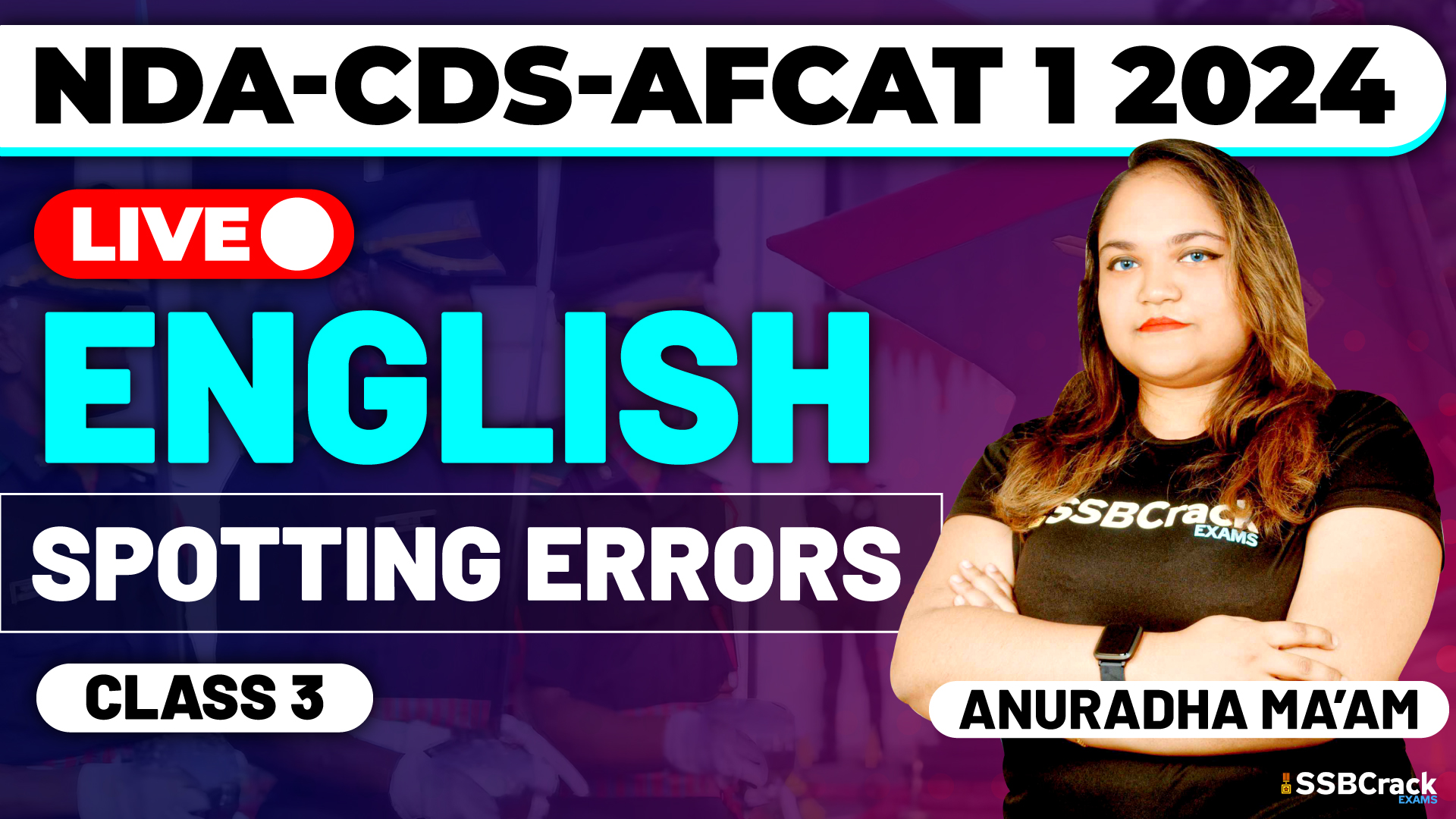In the fiercely competitive landscape of exams like the National Defence Academy (NDA), Air Force Common Admission Test (AFCAT), and Combined Defence Services (CDS), the English language section reigns supreme. Among the various topics tested, “Spotting Errors” emerges as the nucleus—a segment that demands precision and thorough knowledge of English grammar rules. At the heart of excelling in Spotting Errors lies the mastery of Subject-Verb Agreement rules, an indispensable facet of English grammar.
Understanding the Significance of Verb Rules
Subject-Verb Agreement is the cornerstone of grammatical accuracy. It dictates that the subject and verb in a sentence must agree in number (singular or plural). Sound knowledge of verb rules is of paramount importance for several reasons:
- Spotting Errors Proficiency: A significant percentage (70 to 80 percent) of questions in the Spotting Errors section revolve around the correct usage of verbs. Adeptness in verb rules enables you to swiftly and accurately identify grammatical discrepancies.
- Clarity and Precision: Accurate subject-verb agreement ensures that sentences are clear and coherent. Incorrect agreement can lead to confusing or misleading statements.
- Effective Communication: In written and oral communication during exams and interviews, proper subject-verb agreement enhances the fluency and impact of your language.
- Foundational Grammar Skills: Beyond the exams, a strong foundation in verb rules is valuable for overall English language proficiency.
Critical Verb Rules for Success
Let’s explore some of the most crucial and exam-specific verb rules that can pave your way to conquering the Spotting Errors section in NDA, AFCAT, and CDS exams:
- Singular and Plural Subjects: A singular subject (e.g., “The soldier”) takes a singular verb (e.g., “is”). Plural subjects (e.g., “The soldiers”) require plural verbs (e.g., “are”).
- Compound Subjects: When two or more subjects are joined by “and,” the verb is plural (e.g., “The officer and the cadets are training”). However, when subjects are connected by “or” or “nor,” the verb agrees with the subject closest to it (e.g., “Neither the sergeant nor the captain is here”).
- Collective Nouns: Collective nouns (e.g., “team,” “committee”) can take singular or plural verbs depending on whether the group is acting as a unit or as individuals (e.g., “The team is playing well” vs. “The team are wearing different uniforms”).
- Indefinite Pronouns: Indefinite pronouns (e.g., “everyone,” “anyone,” “each,” “neither”) are typically singular and require singular verbs (e.g., “Everyone is ready”). However, “some,” “many,” “both,” and “several” are exceptions and can be singular or plural based on context.
- Verb Agreement with Quantities: When a sentence includes a quantity or measurement, the verb agrees with the quantity, not the noun it modifies (e.g., “Fifty percent of the ammunition is missing”).
- Collective Expressions: Expressions that refer to a singular quantity, such as “a lot,” “a majority,” or “a portion,” are treated as singular and take singular verbs.
- Titles and Names: Titles and names of organizations or companies, despite being plural in form, take singular verbs (e.g., “Microsoft is releasing a new product”).
- There is/There are: In sentences beginning with “there is” or “there are,” the verb agrees with the subject that follows “is” or “are” (e.g., “There are many challenges ahead”).
Conclusion
Mastery of Subject-Verb Agreement rules is not just a prerequisite for excelling in the Spotting Errors section of NDA, AFCAT, and CDS exams; it is an essential skill for effective communication in English. These rules provide a strong foundation for understanding grammar, sentence structure, and clarity in expression. By dedicating time to learn and practice verb rules, you equip yourself with a potent tool to navigate the challenges of competitive exams and enhance your overall English language proficiency. Embrace these rules, practice rigorously, and pave your path to success in the NDA 1 2024, AFCAT 1 2024, and CDS 1 2024 exams.







